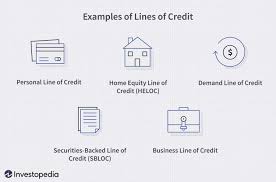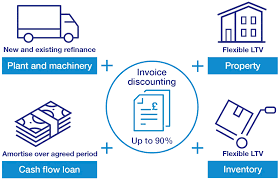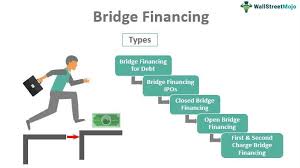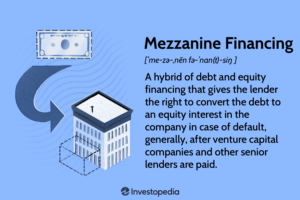As a contractor, accessing financing can be a challenge. Traditional lenders often require a strong credit history, a significant down payment, and a lengthy application process. However, contractor financing options are available to help contractors access the funds they need to complete projects, expand their business, and increase their revenue.
In this article, we will explore the world of contractor financing, discussing the benefits, types, and requirements of contractor financing options. We will also provide tips and best practices for contractors to secure financing and manage their finances effectively.
Benefits of Contractor Financing
Contractor financing offers numerous benefits to contractors, including:
- Improved Cash Flow_: Contractor financing provides contractors with immediate access to cash, enabling them to meet their financial obligations, invest in new projects, and expand their business.
- Increased Competitiveness_: By accessing financing, contractors can bid on larger projects, invest in new equipment and technology, and hire additional staff, increasing their competitiveness in the market.
- Reduced Financial Risk_: Contractor financing can help contractors manage their financial risk by providing a steady stream of income, enabling them to weather financial storms and avoid bankruptcy.
- Improved Credit Score_: By accessing financing and repaying loans on time, contractors can improve their credit score, increasing their access to financing and reducing their borrowing costs.
Types of Contractor Financing
There are several types of contractor financing options available, each with its own unique characteristics and benefits. Here are some of the most common types of contractor financing:
- Construction Loans

Construction loans provide contractors with the funds they need to complete a construction project. These loans are typically secured by the project itself and are repaid once the project is complete.
- Equipment Financing

Equipment financing provides contractors with the funds they need to purchase new equipment, such as heavy machinery, tools, and vehicles. This type of financing is ideal for contractors who need to upgrade their equipment or expand their operations.
- Invoice Financing

Invoice financing provides contractors with immediate access to cash by leveraging their outstanding invoices. This type of financing is ideal for contractors who have slow-paying clients and need to manage their cash flow.
- Line of Credit

A line of credit provides contractors with a revolving credit facility that they can draw upon as needed. This type of financing is ideal for contractors who need to manage their cash flow and cover unexpected expenses
Types of Contractor Financing
- Factoring

Factoring involves selling outstanding invoices to a third-party financing company, which then collects payment from the client. This type of financing is ideal for contractors who need immediate access to cash and want to reduce their administrative burden.
- Asset-Based Financing

Asset-based financing provides contractors with a loan or line of credit that is secured by their assets, such as equipment, property, or inventory. This type of financing is ideal for contractors who have a strong asset base and need to access cash quickly.
- Project Financing

Project financing provides contractors with the funds they need to complete a specific project. This type of financing is ideal for contractors who need to finance a large project and want to spread the cost over a longer period.
- Bridge Financing

Bridge financing provides contractors with short-term financing to bridge the gap between the completion of a project and the receipt of payment from the client. This type of financing is ideal for contractors who need to manage their cash flow and cover unexpected expenses.
- Mezzanine Financing

Mezzanine financing provides contractors with subordinated debt financing that is used to support the acquisition or expansion of a business. This type of financing is ideal for contractors who need to access cash quickly and want to minimize the amount of equity they need to give up.
- Joint Venture Financing

Joint venture financing involves partnering with a financing company to co-fund a project. This type of financing is ideal for contractors who need to access cash quickly and want to share the risk of the project with a partner.
By understanding the different types of contractor financing options available, contractors can make informed decisions about their financing needs and choose the option that best suits their business goals and objectives.
ALSO READ:Accounts Receivable Financing
Requirements for Contractor Financing
To access contractor financing, contractors typically need to meet certain requirements, which may vary depending on the financing option and the lender. Here are some common requirements for contractor financing:
Credit Requirements
- Good Credit History: Contractors need to have a good credit history to access financing. A good credit score can help contractors qualify for lower interest rates and more favorable loan terms.
- Minimum Credit Score: Some lenders may require a minimum credit score, typically 600-650, to qualify for financing.
Business Requirements
- Business Registration: Contractors need to be registered as a business entity, such as a sole proprietorship, partnership, or corporation.
- Business License: Contractors need to have a valid business license to operate in their state or locality.
- Industry Experience: Contractors need to have industry experience and a proven track record of completing projects on time and within budget.
Financial Requirements
- Financial Statements: Contractors need to provide financial statements, such as balance sheets and income statements, to demonstrate their financial stability and creditworthiness.
- Revenue Requirements: Some lenders may require contractors to meet minimum revenue requirements, typically $100,000-$500,000 per year.
- Debt-to-Income Ratio: Contractors need to have a debt-to-income ratio that demonstrates their ability to repay the loan.
Collateral Requirements
- Collateral: Contractors may need to provide collateral, such as equipment or property, to secure their loan.
- Asset-Based Financing: Some lenders may offer asset-based financing, which allows contractors to use their assets as collateral for a loan.
Additional Requirements
- Insurance: Contractors may need to have insurance, such as liability insurance or workers’ compensation insurance, to qualify for financing.
- Tax Compliance: Contractors need to be in compliance with all tax laws and regulations to qualify for financing.
- Background Check: Some lenders may require contractors to undergo a background check to qualify for financing.
By meeting these requirements, contractors can increase their chances of qualifying for financing and accessing the funds they need to grow and succeed in their business.
Tips and Best Practices
- Build a Strong Credit History: Contractors should focus on building a strong credit history by making timely payments, keeping credit utilization low, and monitoring their credit report.
- Develop a Comprehensive Business Plan: Contractors should develop a comprehensive business plan that outlines their financial projections, marketing strategy, and operational plan.
- Maintain Accurate Financial Records: Contractors should maintain accurate financial records, including balance sheets, income statements, and cash flow statements.
Conclusion
In conclusion, contractor financing is a vital component of the construction industry, providing contractors with the necessary funds to complete projects, expand their business, and increase their revenue. With various types of financing options available, contractors can choose the one that best suits their business needs and goals.
It is essential for contractors to understand the benefits and requirements of each financing option, as well as the potential risks and challenges associated with each. By doing so, contractors can make informed decisions about their financing needs and avoid potential pitfalls.
Moreover, contractor financing can provide contractors with the necessary funds to invest in new technologies, equipment, and techniques, enabling them to stay competitive in the industry. Additionally, financing can help contractors to manage their cash flow, reduce their financial risk, and increase their profitability.
In summary, contractor financing is a crucial tool for contractors to succeed in the construction industry. By understanding the various financing options available and making informed decisions, contractors can access the necessary funds to grow and thrive in their business.
Ultimately, contractor financing can help contractors to:
– Access necessary funds to complete projects and expand their business
– Manage their cash flow and reduce their financial risk
– Invest in new technologies, equipment, and techniques to stay competitive
– Increase their profitability and revenue
– Achieve their business goals and objectives
By leveraging contractor financing options, contractors can position themselves for success and growth in the construction industry.




